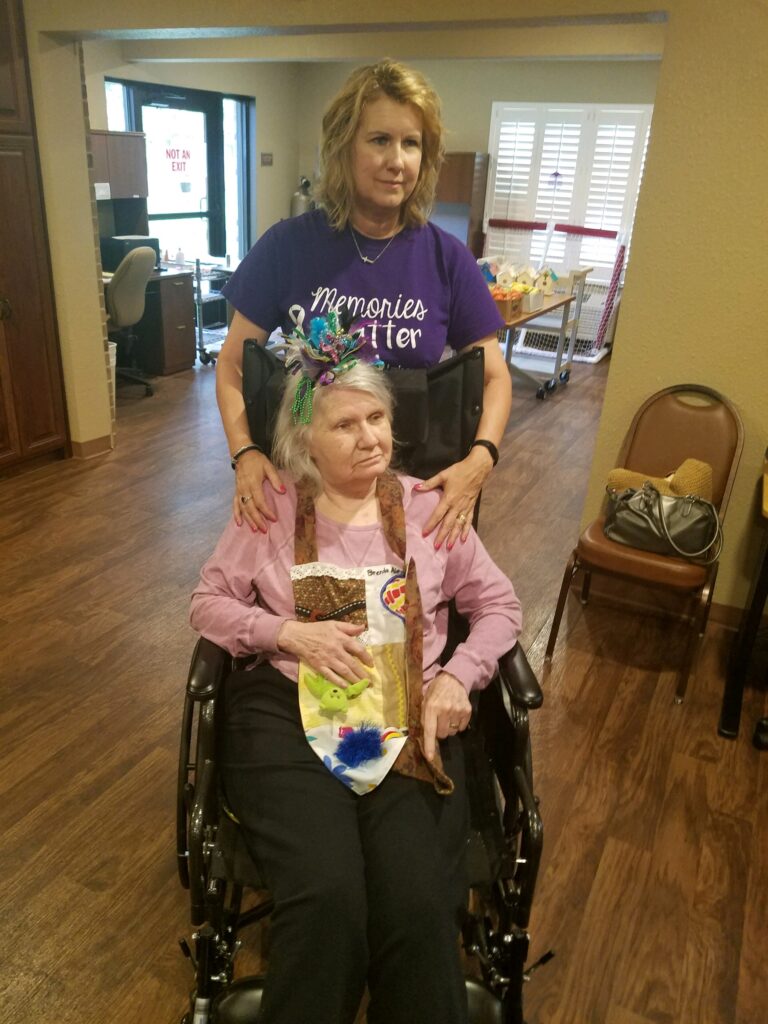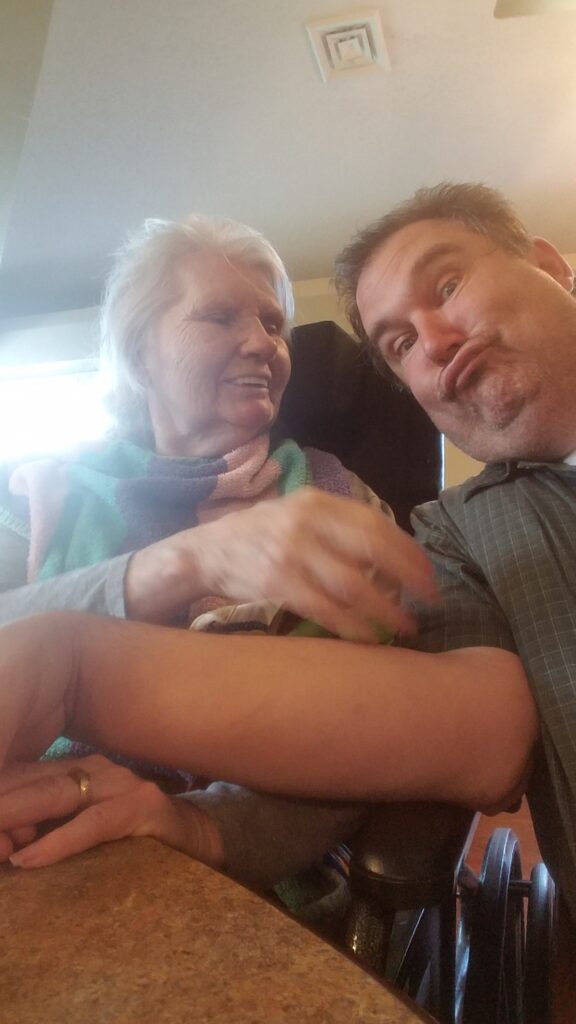Posted 8-20-19
This little piece of digital cornbread may have a grain of more significance for folks who have kids or fix things for a living. But, come to think of it, don’t we all “fix things” for a living? (Deep thoughts= no extra charge) If you are over 60 and/or not an Internet junkie, think of a “hack” as a tip or a (hopefully) good shortcut. 🙂
Troubleshooting what is wrong with a crying baby or a computer has prepared me in a multitude of ways for troubleshooting my mom’s daily concerns. Life would be easier if your loved one could/would tell you exactly what is going on, but often, as with mom, they cannot.
As a bit of background, as a patient slides deeper and deeper into the deadly and dark dementia domain of despair (did I mention I like alliteration… and I hate dementia???), things happen. Not unlike driving Tempo One, my 1991 Ford Tempo (with no AC…does this sound bitter???), things within the brain and other systems of these damsels in distress and wounded warriors cause things to go haywire in many ways. I recognize this as a part-time caregiver with minimal experience, so I can only imagine what battle-tested M.A.S.H. unit level folks that do this stuff every day see. So, while I do NOT have all of the answers of how to troubleshoot all of the problems your loved one has, I do have a few guiding ideas that are worth a look.
- Be sure “it” (the concern) isn’t/wasn’t a stroke, because, as the slogan says, “time lost is brain lost” and patients with dementia need every piece of brain matter and every pathway they can keep for as long as they can keep it. Here is the easy-to-remember F.A.S.T. acronym for recognizing a stroke: Face Drooping, Arm Weakness, Speech Difficulty, Time to call 911. (Note: T can also stand for “Tongue” as a stroke victim’s tongue will often not stick out straight when asked to do so due to face drooping/muscle issues) Think more extreme changes here… Mom has arm weakness and next to no speech every day. Deviation from the norm may be a better way of thinking of it. However, I will say this early and often: trust your gut. If in doubt, get a professional involved. Time is of an essence.
- Keep it simple and start with the easiest possible solution before getting more complex (unless the previous stroke symptoms come into play). If a baby is crying, I always started by changing the ole diaper, checking the burp machine, and the like. Often these two things and the corresponding baby talk and giggles would resolve the problem. I didn’t take my babies to a therapist at first cry. Likewise, if my computer will not turn on, I check the power cord, I make sure I didn’t blow a breaker and I retry turning it on before I field dress the poor thing and start replacing the motherboard. Real-life Example: Mom has had intermittent tremors for the last month (and really off and on for a while). Friday it was considerably worse than normal. I started easy… and felt her arm and cheeks and, just as I thought, the AC was too cool that day inside and seemed like it was trying to compensate for the Tempo One-melting inferno outside…so I grabbed mom a blanket. Go figure, the big tremors she was experiencing became small like “normal”. Is your loved one hot/cold? Are they constipated? (This was a biggie in a recent troubleshooting discussion I called 2). Mom was leaning over much worse than normal about a week ago and was very sad/unhappy. We asked if something hurt and she, like always, said no. We finally noticed that she was bloated and got her meds to “assist”. (Note: nobody is perfect…it turned out she also had a bed sore from her chair that later would be addressed to finish out the troubleshooting). Do they have a slight fever? Check with the medical team. It could be nothing. It could be a UTI or other infection or any number of things.
- Is your loved one tired all of the time? It could just be sundowners that you didn’t notice because they stayed in bed. It could be constipation, eating too close to bedtime, other sleep issues…
- Back to UTIs… Urinary Tract Infections can manifest themselves in many symptoms that can trick people far more experienced than I am. Since they are very common in dementia patients, consider them as a possible culprit early in your troubleshooting thoughts. They can be helped pretty easily if caught fast enough.
- Sores can also cause other concerns. If they sit/lay in the same way for too long, these rascals can be a culprit and must be snooped out. Here is my older post about tips for sores. Agitation, fever, anxiety, anger, etc…all could be caused by a sore that they cannot or will not tell you about.
These are just a few general tips and observations. More importantly, what tips/hacks do YOU have that I can add to this article? I will add it and give you, the expert, the credit. 🙂 Nurses, what do you see every day that could be quickly helped that gets missed? What should family caregivers be looking for? Tips?
Thank you all for all you do, whether you are a patient, a family caregiver or a paid professional. This disease is a huge problem and it takes many soldiers to fight it!
This article is not completely on point with this topic, but it is very good and worth a look. Same with this one. 🙂
Update: I had a nice visit with mom yesterday. Even though she has gained a little weight, she is not struggling with type 2 diabetes as per the doctor’s comments yesterday. Mom is tired and pretty weak these days. She is still happy and laughs at my face and my funny faces/raspberries. All things considered, things could be much worse. I also visited with another of the original Sweet 17 who is in the general population. She struggles with Lewy Body dementia and Alzheimer’s (and Parkinson’s disease), but is still fighting. I told Mrs. W that I will continue to pray for her and she smiled and said thanks and that she needed every prayer. Pray for this damsel in distress. God knows her name and situation. What a terrible disease. 🙁
#EndALZ



Thank you for sharing such informative and delightful information.
Thank you for all you do, Nina. 🙂 I am happy to help where I can.